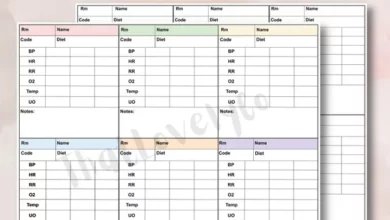How to write a Pharmacist resume

Pharmacists are in high demand, and there are many opportunities available for pharmacists, both in the United States and abroad. With that in mind, it’s important to know how to write a Pharmacist resume if you want to stand out from the rest. Here are some tips to help you write a Pharmacist resume that will get you noticed:
Tips on Writing a Pharmacist resume
Pharmacists are in high demand, and pharmacists with a college degrees have a competitive edge. Use the tips below to help you write a pharmacist resume that will impress employers.
1. Start by noting your strongest skills and achievements. Make sure to list any professional affiliations, education, or clinical experience that is relevant to pharmacology.
2. Be concise but descriptive in your resume language. This means using clear, concise language with accurate detail that will illustrate your strengths as a pharmacist candidate.
3. Try to tailor your resume for each specific Pharmacy position you are applying to. For example, if you are applying for a position as an Assistant Pharmacist, be sure to highlight experiences working as part of a team and providing customer service care.
4.Use keywords throughout your resume so that employers can find your resume more easily when conducting searches online or in their database of resumes. Include keywords in the header of your resume, in the body of your resume, and also in the skills section of your resume (if applicable).
5. Use compelling language when writing your Pharmacist resume. Be sure to use phrases that make your skills and experience sound appealing to employers.
6. Try to target specific positions that you are interested in with your Pharmacist resume. This will help you show off your skills and experience in the most effective way possible.
7. Make sure your Pharmacist resume is easy to read and navigate. Use formatting that is easy on the eyes and makes information easy to find.
8. Keep your Pharmacist resume short and sweet. Limit it to one page, if possible. This will make it alot easier for employers to scan through it quickly and see if you have the qualifications they are looking for.
Parts of your resume and how to tailor them
Experience
Pharmacist resumes are typically focused on displaying experience in pharmacology, pharmacy practice, and drug information management. To stand out on a pharmacist’s resume, experience in specific areas may need to be emphasized. For example, if pharmacists are interested in working as clinical pharmacologists, they may want to emphasize experience in that field on their resumes. It is also important to highlight skills and abilities that would be relevant to the position for which you are applying. For example, if you are applying for a position as a pharmacy technician, be sure to highlight your skills in math and science.
Skills
A Pharmacist’s resume is a document that outlines the skills and accomplishments of a Pharmacist. A Pharmacist’s resume should be well-organized and highlight the Pharmacist’s strengths. A Pharmacist’s resume should also reflect the Pharmacist’s experience and knowledge in pharmacy.
Resume Objective
Writing a Pharmacist resume can be challenging, especially if you are not experienced in writing resumes. Make sure to focus your resume on the skills that will benefit your potential employer.
Summary of Education and Training
A pharmacist is a healthcare professional who helps patients with their medication needs. As a pharmacist, you will need to have a degree in pharmacy, as well as experience working in a pharmacy. You will also need to pass the Pharmacy Technician Certification Exam (PTCE).
Pharmacist Resume Sample
Karen has worked as a pharmacist for 10 years, and during that time, she has gained experience working with many different medications. She has also successfully passed the PTCE multiple times. Karen would like to continue her career in pharmacy and is looking for new opportunities.
When writing your resume, make sure to highlight your skills and experience related to pharmacy. Include keywords that describe your role as a pharmacist, such as medication management, drug safety, compounding, and patient services. Additionally, highlight any awards or accolades you have received for your work in the field of pharmacy.
Work Experience
If you have experience as a pharmacist, you can use that to your advantage when writing your resume. Start by listing your positions and the dates you held them. Next, list the pharmacists you worked with and what tasks they assigned you. Be sure to mention any training or education you received in the pharmacy field. Finally, describe your accomplishments in those roles and how they relate to pharmacy work.
Abilities and Skills
As a pharmacist, you will need both abilities and skills to be successful in this career. Abilities include problem-solving, communication, and critical thinking. Skills include knowledge of pharmacology, human behavior, and pharmacy practice. Here are some tips on how to showcase your skills and abilities in your resume:
1. Include descriptors that show your problem-solving ability. For example, “Developed innovative solutions to complex problems.”
2. Show your communication skills by describing how you helped solve a challenging situation or collaborated with others. For example, “Successfully communicated complex information to patients and staff.”
3. Share examples of your critical thinking skills by describing how you examined data critically or came up with novel solutions to difficult challenges. For example, “Analyzed multiple factors when making therapeutic decisions.”
Personal Qualities
Personal qualities that make a pharmacist an excellent candidate for a position include strong analytical and problem-solving skills, good organizational and time management abilities, strong communication and writing skills, as well as experience in pharmacology. Pharmacists should also be reliable and have a good work ethic.
References
If you are considering a career as a pharmacist, there are some things you need to know before starting your job search. First and foremost, pharmacists must have a valid pharmacy license. There are also many pharmacists who become certified specialists in their field.
The following are some tips for writing a pharmacist resume.
1. Start by listing your education and experience relevant to the pharmacy profession. Include specific dates, locations, and coursework associated with your education and experience.
2. List any professional organizations or associations that you have belonged to. This will help you demonstrate your level of expertise and professionalism in the pharmacy community.
3. Show how your skills and knowledge have prepared you for a career as a pharmacist by describing specific examples of work that you have performed in this field. Be sure to include details about the patients or clients involved, the tasks you completed, and the results of those tasks.
Application Tips
One way to stand out on a pharmacy resume is to focus on your professional experience in the pharmacy field. Include job titles, dates of employment, and reasons for leaving, if applicable. Include skills that you developed while working in the pharmacy setting, such as critical thinking, problem-solving, and teamwork. In addition, emphasize your personal qualities that would make you a good fit for a pharmacy career. Finally, list any recent projects or initiatives that you were involved in as a pharmacist.
You may also like these articles:
- How To Tell Your Boss You Want To Quit: 6 Ways to Do It
- A Sample Acting Resume Format: What It Is And How To Write…
- Soft Skills: What Are They, And Why Do You Need Them?
- Common Interview Questions: What Do They Really Want To…
- How to Get Promoted At Work: A Complete Guide
- How to Write a Letter of Intent: A Step-By-Step Guide
Frequently Asked Questions
What should a pharmacist put on a resume?
Pharmacists should put a lot of emphasis on their clinical skills and experience when putting together a resume. Include information about any work you’ve done in hospitals, clinics, or other medical settings. Also, include any volunteer work you’ve done in the field of pharmacy.
When creating your resume, it is important to highlight your strengths. Pharmacists are well-versed in pharmacology, so highlight this knowledge on your resume. Additionally, emphasize your ability to communicate with patients and specialists. Be sure to list any awards or accolades that you have received for your work in a pharmacy.
What are the accomplishments of pharmacists?
A pharmacist’s accomplishments can include helping patients with their medications, Handling and dispensing prescriptions, Consulting with patients on drug therapies, Advising patients on healthcare choices, and Educating the public about medications. In order to be a successful pharmacist, it is important to have effective communication and interpersonal skills. Pharmacists must also be knowledgeable about pharmacology and pharmacy practice.
How do I write a resume for CVS?
If you are looking for a career as a pharmacist, there are several essential steps that you need to take before applying. The first step is to create a resume that highlights your skills and experience as a pharmacist. Next, you need to submit your resume to various pharmacies in your area. Finally, you will need to interview pharmacists in order to get hired.
Conclusion
We’ve considered all you need to know about writing a pharmacist resume. Consider the above guidelines carefully, and use them to create your own resume. For more tips on how to create an impressive resume, kindly visit Dailygam.com.






